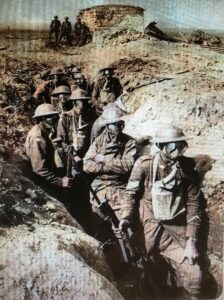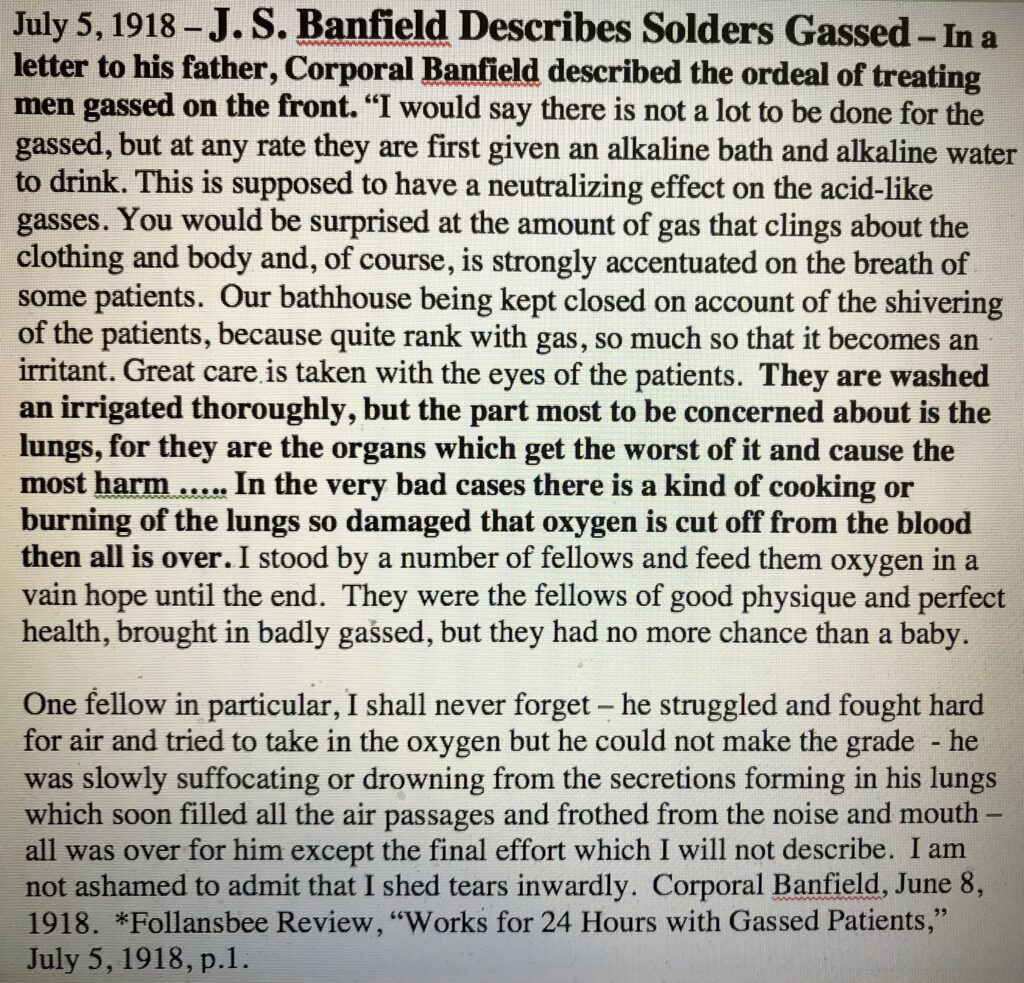
As the final massive German offensive on the Western front began in the Spring 1918, demands for medical and surgical supplies in Follansbee became critical as hospital provisions were going to Europe. Regulations for food distribution were also in effect in Follansbee.
The Follansbee Review published letters from soldiers at the front. Here are some excerpts from their letters:
Private John P. Dear wrote from camp Sheridan and said, “So while the ruthless subjector is whining for peace, let’s give no rest but drive him and his thoughtless cohort on until he cries mercy. Let us not falter but keep the wheels of war in progress. Let’s hope for Peace but pray for Victory.”
“I’ve only been back from my tricks in the trenches a few days. Some Place — those trenches. Plenty of mud and water, knee deep in some places. Rats by the thousands and to make it more interesting – a Rocho bullet or shrapnel or gas is liable to come over any time and knock you off. Don’t let anyone kid you into thinking that the front line trenches is a safe place. They don’t know what they are talking about. I’ve experienced all this but imagine it is only a taste of what is to come. The Spring drive is on and no one knows what will happen.” Cecil Lusk, May 3, 1918.
“I want to tell you that we hold the honor of being the first Americans to go over the top – that was on the 28th day of May when we captured a small town by the name of Cantigny…. I have been over the top three times, the 1st two times I came through fine. Fritz had my number the last time, but I sure got my share of them before they got me.” Corp. James R. Stewart. Aug. 5, 1918.
“On the fourth of July, I saw two planes brought down….The machine guns and antiaircraft guns were banging away and all of a sudden the plane started for the ground, careening all the way down. The pilot was hit in the head and his body was half buried in the ground when he was found…. One of our boys has the pilot’s helmet, all blood stained, full of brains, and pierced by shrapnel.”
“It was during the changing of troops in the first line that the Germans started throwing over mustard gas. The three kinds of gas used are mustard, that burns like fire and greatly affects the eyes; then phosgene (gas) that turns the lungs into water; and chlorine…. They sure hit them hard, and they were just being relieved. I never worked harder than on that day. We worked for about 12 hours without a rest, only 25 minutes for two meals. In that time I lifted by myself over two hundred men from a table to a litter, weighing any place from 100 to 250 pounds.” Dick Cattell, Sep. 13, 1918.
